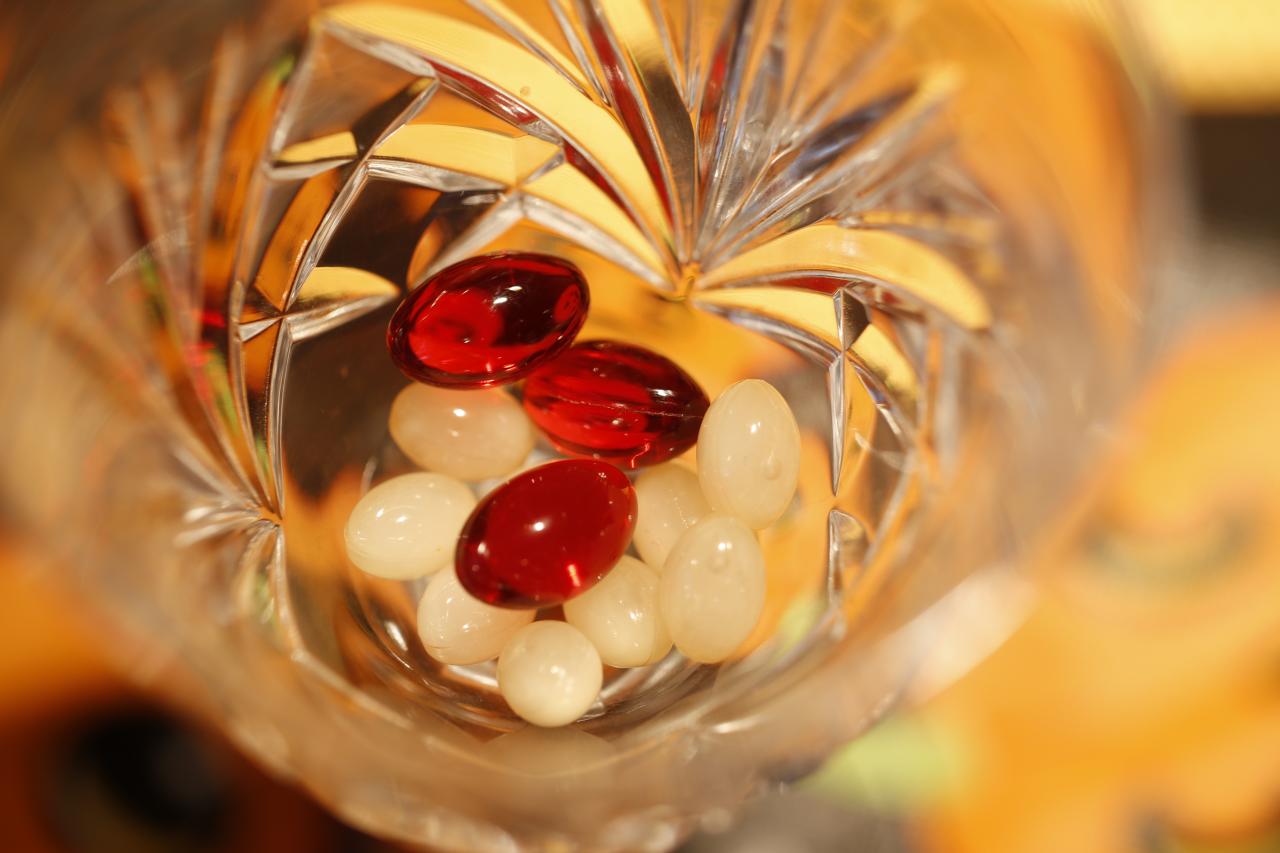 Wavebreak Media/Thinkstock
Wavebreak Media/Thinkstock
There are many vitamins, available as supplementary tablets or through their natural food source that can help enhance the health of girls, women and babies.
Period Pain
Vitamin E
This has been shown to reduce period pain and even to reduce the amount of blood loss in teenage girls when they took a 200 mg tablet per day before and during their periods.
It also lessened the need for over-the-counter pain medications. Peter Bowen-Simpkins, from the Royal College of Obstetricians and Gynaecologists, considered it a breakthrough discovery that could improve the quality of life for thousands of girls.
Vitamin E is also available in:
• Sunflower oil
• Olive oil
• Corn oil
• Soybean oil
• Sunflower seeds
• Nuts such as peanuts, almonds and hazelnuts
• Spinach and other leafy green vegetables
• Broccoli
• Tomatoes
• Kiwi fruit
• Mangoes
• Fortified breakfast cereals. (1, 2)
Pre-Menstrual Syndrome
Symptoms such as bloating, moodiness, irritability, anxiety and forgetfulness were reduced by supplementation with vitamin B6 -- a relief I’m sure, for the male partners in the household! (3)
Pregnancy
Pre-Eclampsia
A study in the Lancet found that a combination of vitamin C and E reduced cases of pre-eclampsia and placental dysfunction in high risk pregnant women. The women were given 1000 mg vitamin C daily and 400 IU of vitamin E daily. There was a 21 percent decrease in placental dysfunctions and a 6 percent decrease in pre-eclampsia when compared with the placebo group. (4)
Morning Sickness
Vitamin B6 has been shown to reduce morning sickness. In a study of 342 women, some were given placebo and others vitamin B6. The women in the B6 group had a significant reduction in nausea and vomiting.
A smaller study done by the University of Iowa found similar results. Dosages between 30-75mg daily were used in these studies. Other trials have shown that when vitamin B6 is combined with the antihistamine, doxylamine, it reduced the number of hospitalizations due to severe morning sickness. (5, 6)
Vitamin B6 is available from:
• Meat
• Poultry
• Fish
• Tofu and other soy products
• Legumes
• Potatoes
• Non-citrus fruit, for example, bananas, watermelon, raisins
• Rice
• Bulgar wheat
• Cottage cheese
• Onions
• Spinach
• Nuts
• Chickpeas
• Plain waffles
• Fortified breakfast cereals (7)
Birth Complications and Pre-Term Delivery
Women who are of normal weight and who take a pregnancy multivitamin before and during their pregnancy have a 16 percent reduced risk of giving birth prematurely and a 33 percent reduced risk of having a low birth weight baby. (8)
Neural Tube Defects
Supplementation with folic acid is known to reduce neural tube defects such as spina bifida and associated deaths in babies. Folic acid can reduce the risk by up to 70 percent in women who have previously had a baby with a neural tube defect.
It is estimated that 13 percent of neonatal deaths due to congenital abnormality could be prevented by folic acid. This is why it is routinely recommended that all pregnant women should take this supplement in the first 12 weeks of pregnancy when the baby’s vital organs are still forming.
Many women continue to take folic acid in the form of a pregnancy multivitamin throughout the rest of their pregnancy and as this reduces the risk of prematurity, it is a good idea. (9)
Sources of folic acid include:
• Orange juice
• Tomato juice
• Asparagus
• Turnip greens
• Okra
• Broccoli
• Chickpeas
• Black eyed peas
• Spinach
• Fortified bread
• Fortified breakfast cereals (10)
Heart Disease in Women
Heart disease is often thought of as a condition affecting middle-aged men, but it can occur in women too. A study at Children’s Hospital, Boston, USA found that vitamin C supplementation had a protective effect against heart disease in women.
Researchers followed up on over 85,000 nurses for 16 years, assessing their dietary habits and vitamin supplement consumption and they found that those women who took vitamin C supplements had a lower risk of developing coronary heart disease. There is also evidence that it lowers the risk of some cancers.
Vitamin C is available in:
• Oranges and other citrus fruits
• Fruit juices
• Berries like strawberries, blueberries, blackberries, raspberries
• Potatoes, including sweet potatoes
• Tomatoes
• Peppers
• Broccoli
• Spinach
• Brussels sprouts
• Cauliflower
• Rose hip tea (10 and 11)
Hip Fractures
Postmenopausal women can be prone to hip fractures. Vitamin K is known to help prevent these fractures, so taking a "well woman" supplement containing vitamin K may reduce your risk of fractures.
Vitamin K is also available in leafy green vegetables such as cabbage, kale, spinach, sprouts, broccoli and in dairy products like milk and eggs. (10)
Sources:
1. Vitamin E May Ease Period Pain, The Telegraph. Web. 24 April 2012. http://www.guardian.co.uk/uk/2005/apr/12/health.science
2. Vitamin E, Office of Dietary Supplements. Web. 24 April 2012. http://ods.od.nih.gov/factsheets/vitamine-HealthProfessional
3. Pyridoxine (vitamin B6) therapy for premenstrual syndrome, Int J Gynaecol Obstet. 2007 Jan;96(1):43-4. Epub 2006 Dec 21. http://www.ncbi.nlm.nih.gov/pubmed/17187801?dopt=Abstract
4. Effect of antioxidants on the occurrence of pre-eclampsia in women at increased risk: a randomised trial, Lancet. 1999 Sep 4;354(9181):810-6.
Abstract: http://www.ncbi.nlm.nih.gov/pubmed/10485722
5. Pyridoxine for nausea and vomiting of pregnancy: a randomized, double-blind, placebo-controlled trial, Am J Obstet Gynecol. 1995 Sep;173(3 Pt 1):881-4. Abstract: http://www.ncbi.nlm.nih.gov/pubmed/7573262?dopt=Abstract
6. ACOG (American College of Obstetrics and Gynecology) Practice Bulletin: nausea and vomiting of pregnancy, Obstet Gynecol. 2004 Apr;103(4):803-14. http://www.ncbi.nlm.nih.gov/pubmed/15051578?dopt=Abstract
7. Vitamin B6, Office of Dietary Supplements. Web. 24 April 2012. http://ods.od.nih.gov/factsheets/vitaminb6-HealthProfessional
8. Vitamin Supplements May Lower Risk of Birth Complication, WebMD. Web. 24 April 2012.
http://www.webmd.com/baby/news/20110819/multivitamins-may-lower-birth-risk
9. Folic acid to reduce neonatal mortality from neural tube disorders, Int J Epidemiol. 2010 April; 39(suppl_1): i110–i121.
Full Text: http://www.ncbi.nlm.nih.gov/pmc/articles/PMC2845867
10. Listing of Vitamins, Harvard Health Publications, Harvard Medical School. Web. 24 April 2012. http://www.health.harvard.edu/newsweek/Listing_of_vitamins.htm
11. Vitamin C and risk of coronary heart disease in women, J Am Coll Cardiol. 2003 Jul 16;42(2):246-52. Abstract: http://www.ncbi.nlm.nih.gov/pubmed/12875759?dopt=Abstract
Reviewed April 24, 2012
by Michele Blacksberg RN
Edited by Jody Smith





Add a CommentComments
There are no comments yet. Be the first one and get the conversation started!